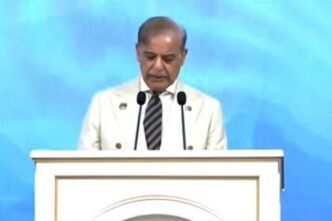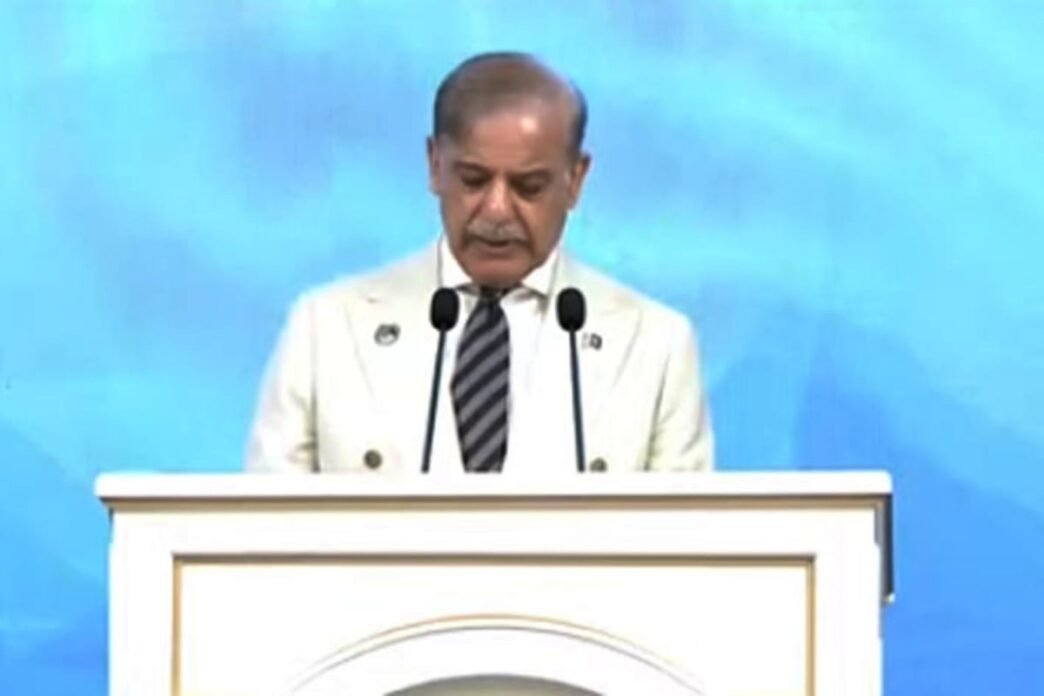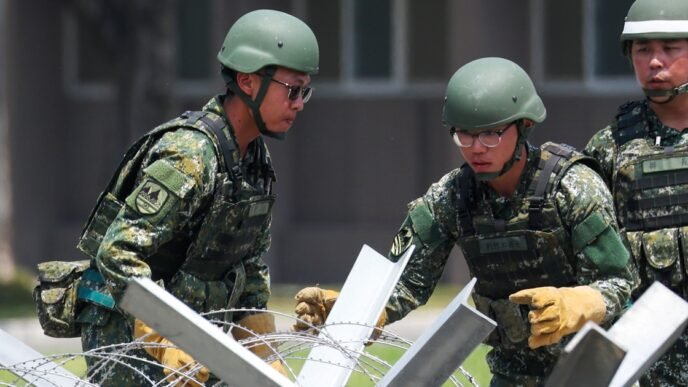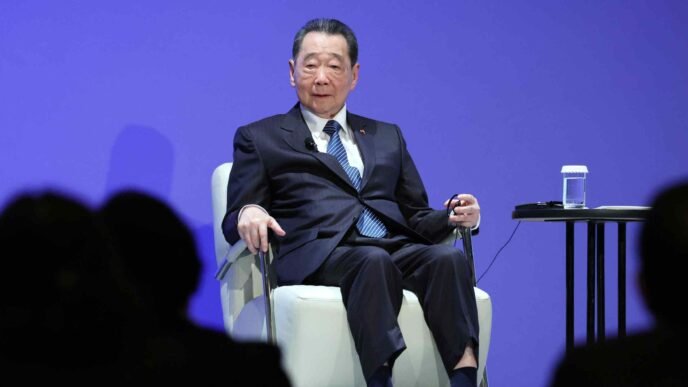PM Shehbaz warns against use of water as political weapon
DUSHANBE: Prime Minister Shehbaz Sharif strongly condemned the politicization of water resources, warning that Pakistan would not tolerate any attempt by India to suspend the Indus Waters Treaty and put millions of lives at risk for political purposes.
Speaking at the High-Level International Conference on Glaciers’ Preservation, being held from May 29 to 31, 2025, the prime minister said, “India’s unilateral and unlawful move to place the Indus Waters Treaty in abeyance is deeply regrettable. Water should never be used as a tool for political leverage. Pakistan will not allow this red line to be crossed.”
The global conference, focused on glacier conservation, has drawn over 2,500 participants from 80 UN member states and 70 international organizations, including heads of government, ministers, vice presidents, and UN assistant secretaries-general.
Prime Minister Shehbaz, in his comprehensive address, touched all the relevant issues, including glacial preservation, Pakistan’s climate vulnerability, 2022 floods in Pakistan, global climate action and responsibility, scientific projections on glacial melt, weaponization of water and call to protect nature and humanity’s shared destiny.
“The world today bears fresh scars from the use of conventional weapons in Gaza that have left deep wounds. As if that were not enough, we are now witnessing an alarming new low—the weaponization of water,” he told the international conference being hosted by Government of Tajikistan in collaboration with the United Nations, UNESCO, WMO, the Asian Development Bank, and other key partners as a historic moment for climate ambition, glacier preservation, and international cooperation.
The 77th session of the United Nations General Assembly, through a resolution, had declared 2025 as the International Year of Glaciers’ Preservation, 21st of March as World Day for Glaciers starting in 2025, and that the Government of Tajikistan will host the International Conference on the subject in 2025.
Prime Minister Shehbaz said that Pakistan, being home to over 13,000 glaciers, was the most concerning as glaciers contributed nearly half of the annual flows in the Indus River system – the lifeline of our civilisation, culture and economy.
“The five great rivers that shape our geographical landscape—Indus, Jhelum, Chenab, Ravi, and Sutlej—all depend on the stability of glacial systems. This makes Pakistan one of the most vulnerable countries to any climatic changes that impact glaciers,” he added.
He told the international gathering that Pakistan had faced the peril of glacial melt in the form of devastating floods in 2022 which destroyed millions of acres of standing crops, hundreds of thousands of houses and infrastructure, despite Pakistan’s only less than half a percent contribution of the total world emissions and yet being one of the 10 most vulnerable countries.












